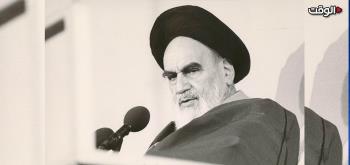Alwaght- Maybe is a word that implies possibility but is far from confirming it. France may be budging on its harsh and relentless stance on the removal of Syrian president Bashar Assad. What may have caused such a sudden and unexpected shift, from clamping down on Assad and conditioning his ouster in order to allow any form of political transition to disregarding it as a crucial component of a future settlement on the Syrian crisis?
In an interview published on Saturday, French Foreign Minister Laurent Fabius, who has repeatedly slammed the government in Damascus, said he no longer sees Assad’s removal as a prerequisite for a political transition in Syria.
“The fight against Daesh [ISIS] is crucial, but it will only be totally effective if all the Syrian and regional forces are united… A united Syria implies a political transition. That does not mean that Bashar al-Assad must leave even before the transition, but there must be assurances for the future,” he told the French newspaper Le Progres.
The sudden shift away from a rigid stance against the government in Damascus signals a change in priorities. Since the beginning of the Syrian conflict, Paris has been demanding the overthrow of the Syrian government spearheaded by Assad, whom it has called a “butcher”. However, against the backdrop of international ISIS attacks, particularly the ones targeting France, the western nation is adopting a new approach to the Syria predicament tackling ISIS as the number one threat for a change.
What caused such a noticeable change? The answer can be dated to as recently as November 13th when the terrorist group claimed responsibility for attacks that killed 130 people and injured around 350 others on French soil.
Is Paris contradicting itself? Just until recently, the French have been repeating after Washington: Assad must leave for the sake of a political solution to the bloody war.
On a recent trip to the US, French President Francois Hollande said Assad must resign “as soon as possible” and that he “cannot be the future of Syria.”
The following week, the French foreign minister stated that the Syrian army has a role to fulfill in the fight against ISIS.
"The operations must be led by local forces: moderate Syrian, Arab, Kurdish, and if necessary, in coordination with the Syrian army, which is impossible without a political transition," Fabius told Le Progres.
The FM, however, maintained that the Syrian leader must eventually resign.
The threat of ISIS, France believes, is transitory. As soon as that problem is out of the way, Assad’s departure will work its way back up to the French’s list of priorities on the Syrian conflict. The pre-transitional period that will chart the future of Syria has been turbulent, with opinions and stances unswaying most of the time. Although France’s case has given hope to many that the political process can begin while including all sides of the war, there is no 180 degrees turn on the issue, meaning the slight change may not have the significant consequences that are needed to restore peace to Syria.


























